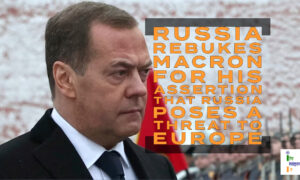
lawmakers in E.U.have given their final approval to raise it’s renewable energy targets to 42.5% by 2030 from a current target of 32%
The European Union (E.U.) lawmakers have given their final approval to raise E.U.’s renewable energy targets to 42.5% by 2030 from a current target of 32%.
It faced a tough passage through negotiations among E.U. countries’ Governments and secured support only after France won carve-outs for nuclear energy, which is low-carbon but not renewable. A total of 470 lawmakers voted in favour of raising the renewable energy targets, 120 voted against the raise and 40 abstained from voting.
The move is a part of the E.U.’s plans to curb climate change and shift away from fossil fuels. It will also allow faster approval of new renewable projects and encourage new technologies. It reflects the growing recognition of the importance of renewable energy sources in reducing greenhouse gas emissions and securing a cleaner and more resilient energy future.
Speaking on the occasion, the E.U. Parliament’s negotiator on the law – Markus Pieper, said, “I am looking forward to seeing pilot projects for floating solar cells, wind kites, run-of-river power plants or other projects we cannot imagine yet.”
Earlier in March 2023, the E.U. Member States and lawmakers had negotiated a deal on the renewable energy law, which was supposed to be final. However, it was held up by countries seeking greater recognition of nuclear power. Later in June 2023, the Member States gave the go-ahead to the deal after Brussels offered written assurances that it would consider exempting certain ammonia plants from renewable fuel targets and allow them to run on nuclear-based fuels instead.
France said that the increased focus on renewable energy will require hydrogen produced from both renewables and nuclear. It also said that E.U. laws should support both renewable and nuclear energy.
The new targets, which include specific goals to increase renewable use in transport and industry, aim to spur investments to massively expand wind and solar projects. The E.U. believes that this can be done using more local manufacturing. China currently supplies most of the parts used in European solar power installations.
Meanwhile, Europe’s solar industry has warned the European Commission that a drop in module prices, driven in part by fierce competition among Chinese suppliers, is pushing European manufacturers towards bankruptcy. The European Commission said that is aware of the difficulties and is in touch with renewable energy manufacturers to discuss the possible solutions. The E.U. is currently negotiating a law aimed at increasing support for local manufacturing of green technologies as well. Besides, Europe got 22% of its energy from renewable sources in 2021.







